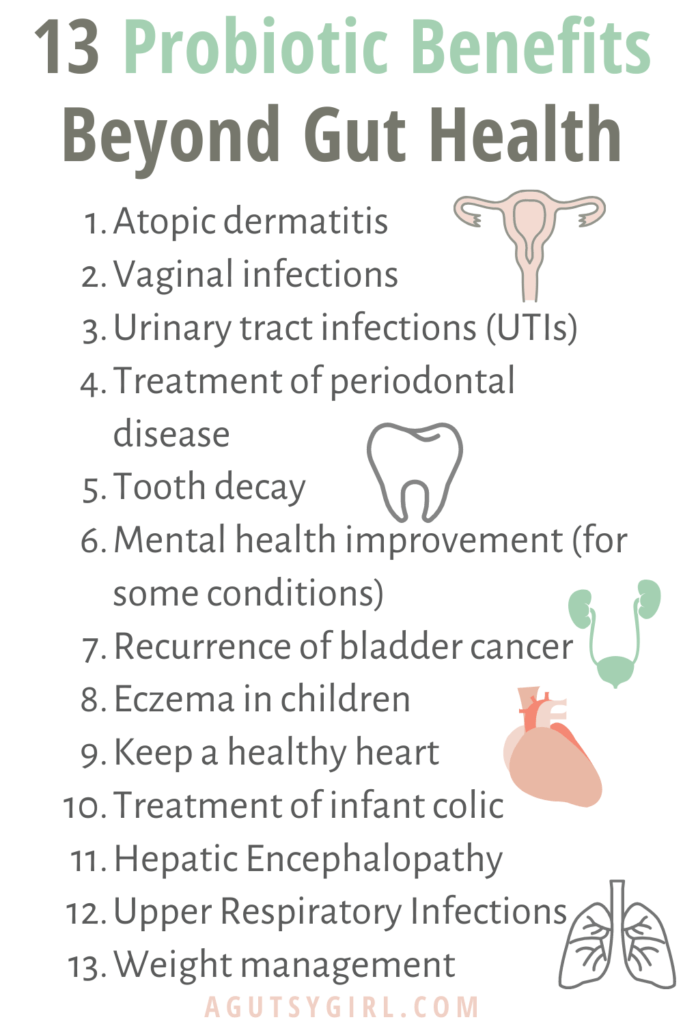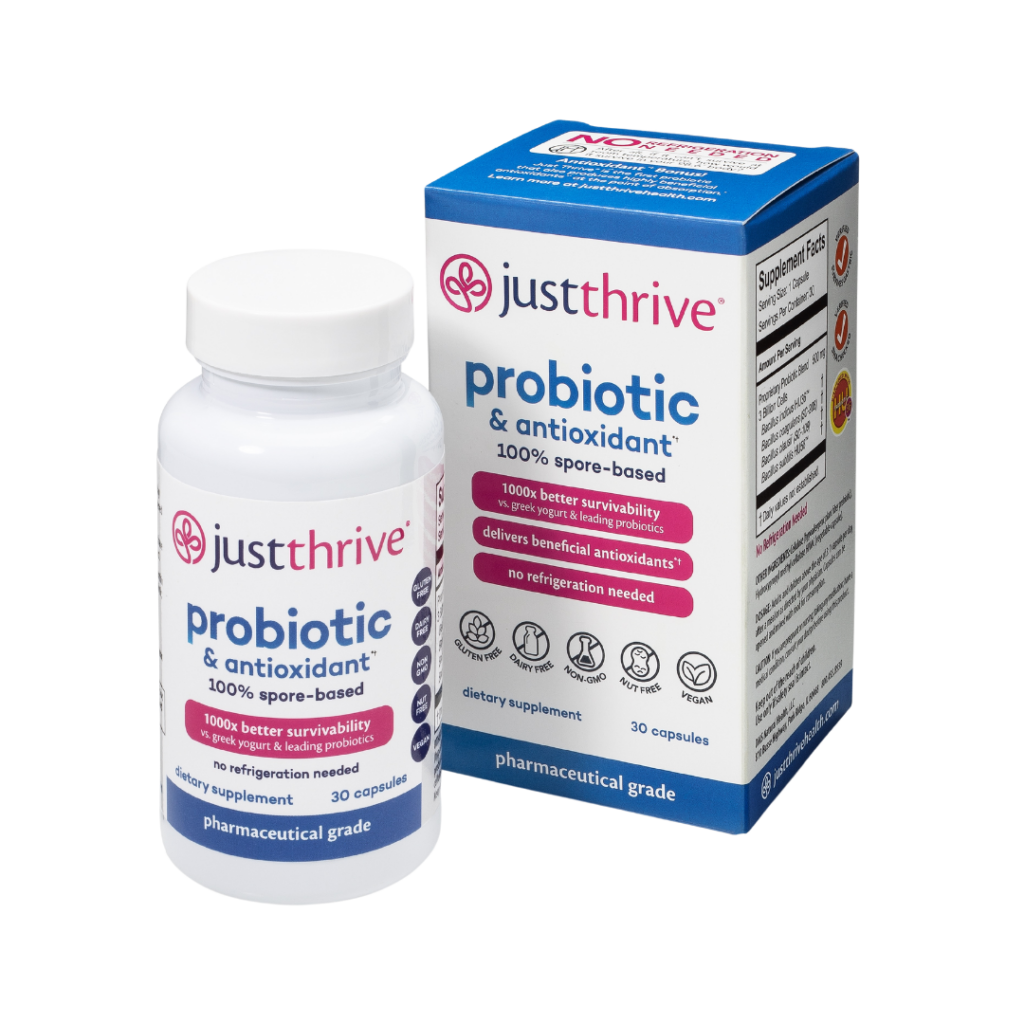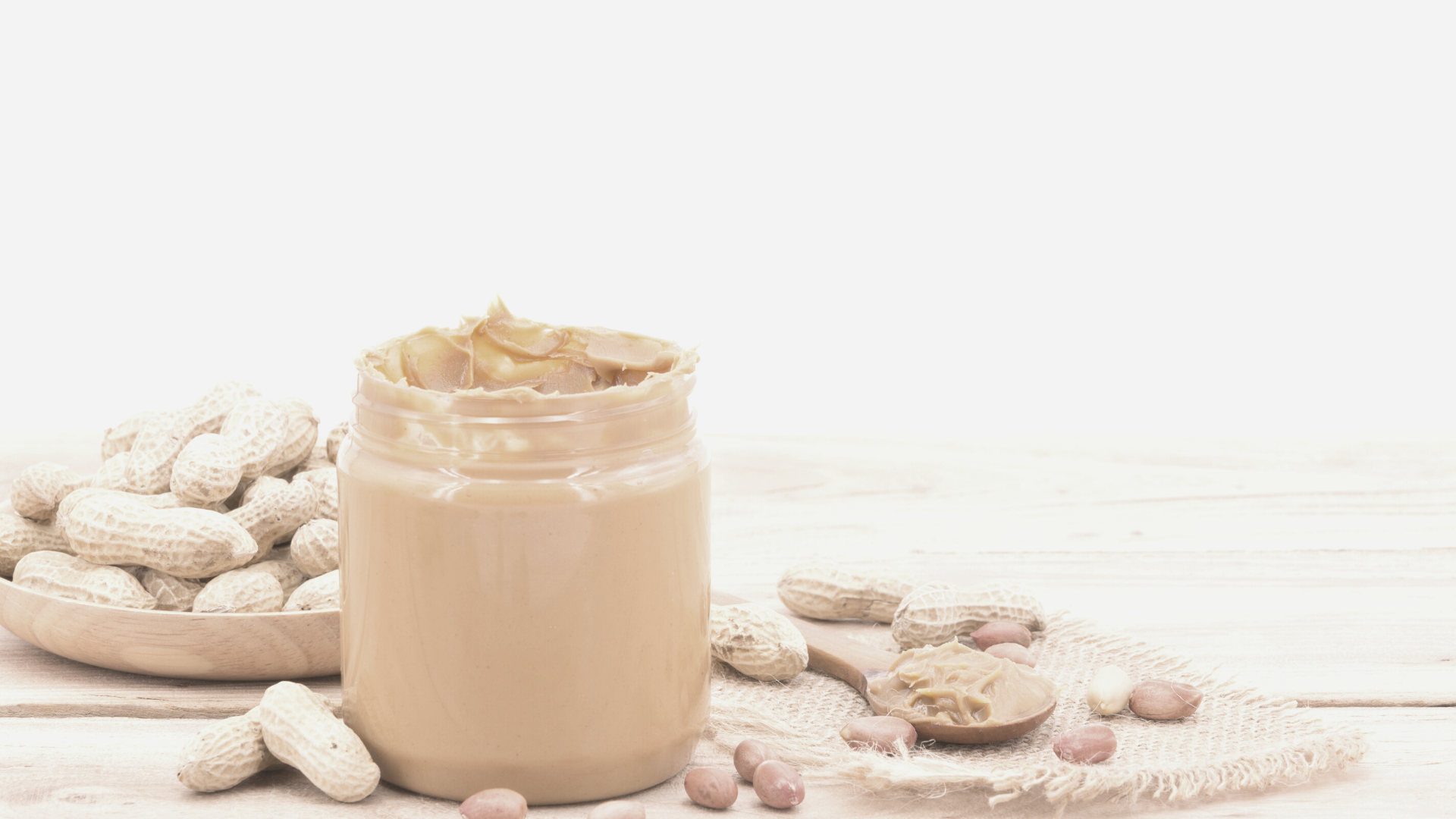Probiotics can have far more impact than on the gut in and of itself. Today I have 13 probiotic benefits beyond gut health.
Because I’m A Gutsy Girl, I’d say that the probiotic topic is in the top 5 frequently asked about.
So I continue to do a lot of research about them, providing as much value and education as possible.
Before I dig into the topic at hand today, I want to address two questions I’ve been getting a lot lately: do they actually work, and should I take a daily probiotic?
Note: There are affiliate links in this post, as I work with Just Thrive Probiotic. However, I only work with Just Thrive Probiotic because it’s the probiotic my entire family uses. Because of it, when you click HERE and purchase anything from Just Thrive, you can save 15%. Simply enter code AGUTSYGIRL at checkout and you’ll be in on the savings.
For all my special savings, coupons, and codes for overall gut health and gut healing, grab and bookmark the FREE Gutsy Master Spreadsheet HERE.
Do Probiotics Work?
Of course they work. The research is there.
However, the caveat is that it’s far more complex than simply saying, “Take a probiotic, any probiotic, and it’s going to help with your specific condition.”
It actually does not work like that.
This is why, I still have no clue why medical practitioners who know exactly what’s wrong with a patient tell them things like, “Get a good probiotic. Find one with 1 billion CFU’s. Take it daily.”
Because it means, almost literally, nothing.
Here are some statements to back that up:
- However, in most instances, we still don’t know which probiotics are helpful and which are not. We also don’t know how much of the probiotic people would have to take or who would be most likely to benefit. Even for the conditions that have been studied the most, researchers are still working toward finding the answers to these questions. – NIH
- Not all probiotics are the same. Different strains of the bacteria have different effects. For example, one strain may fight against cavity-causing organisms in our mouths and don’t need to survive a trip through our guts. Research has been promising for these friendly critters. – Harvard
- Strain is important, as different bacterial strains perform different functions. Species in the Lactobacillus and Bifidobacterium categories are the most common, but they don’t all do the same thing. Lactobacillus plantarum have potential cholesterol lowering properties, whereas Lactobacillus reuteri are able to inhibit the growth of germs such as E coli. source
In other words, here is how you should determine which probiotic to take:
- Understand your unique circumstance(s). And then,
- Research the strains and species which will address that unique circumstance.
To help get you started, I’ve written all about Probiotic Strains vs. Species HERE.
Should I Take a Probiotic Daily?
The research says that taking a probiotic daily is safe and most doctors recommend it.
However, you must see the above information. It might not make sense for you to take your probiotic each day (or at all).
I take the Just Thrive Probiotic (as does my entire family), and we take it each day.
By the way, click HERE to see some of the conditions research backs for using the Just Thrive Probiotic. Spoiler alert: Leaky Gut Syndrome is one; SIBO is another.
Alright, so let me share with you now the 13 probiotic benefits beyond gut health.
13 Probiotic Benefits Beyond Gut Health
Click HERE to save this post for later.

This is very important because most people think that probiotics are only for digestive health.
In fact, sometimes I’ll get messages from people I personally know who will ask something like this,
If my gut is fine, why would my doctor be recommending a probiotic? Aren’t they just for the digestive system?
And here are many of the potential reasons/issues/conditions why the doctor might be recommending a probiotic.
- Atopic dermatitis
- Vaginal infections
- Urinary tract infections (UTI’s)
- Treatment of periodontal disease
- Tooth decay
- Mental health improvement (for some conditions)
- Recurrence of bladder cancer
- Eczema in children
- Keep a healthy heart
- Treatment of infant colic
- Hepatic Encephalopathy
- Upper Respiratory Infections
- Weight management
Sources: HERE, HERE, HERE, and HERE.
Probiotic Research and Money
Again, please remember that different probiotic strains and species are recommended for different conditions.
Some conditions come with more research to back probiotic use than others.
But also, here is something else to consider. There is a huge reason why even more research is not out there on probiotic strains, species, and various conditions.
That reason is, you guessed it, money.
In order to conduct research, it costs money. But who wants to throw down money if there is no direct benefit?
Since a probiotic is a supplement and not a patented medication, there isn’t money in it for general research unless you are the probiotic manufacturer.
So in this case, it’s oftentimes helpful and even necessary to cross-check. For example, Just Thrive Probiotic has done the research.
It’s well-known and published.
But even still, I test the product on myself, read what other people say, and try to find more research to coincide with their findings.
Make sense?!
Check out All About Just Thrive Probiotic HERE for more info on this.
And remember, you can always get probiotics naturally from food as well.
If you liked this post, you might also enjoy:

Xox,
SKH
🤰 bloating be gone! weight loss through optimal gut health for women
💃ʜᴇᴀʟ ʏᴏᴜʀ ɢᴜᴛ. ʜᴇᴀʟ ʏᴏᴜʀ ʟɪfe.
🫶🏻 founder gutbyome.com







